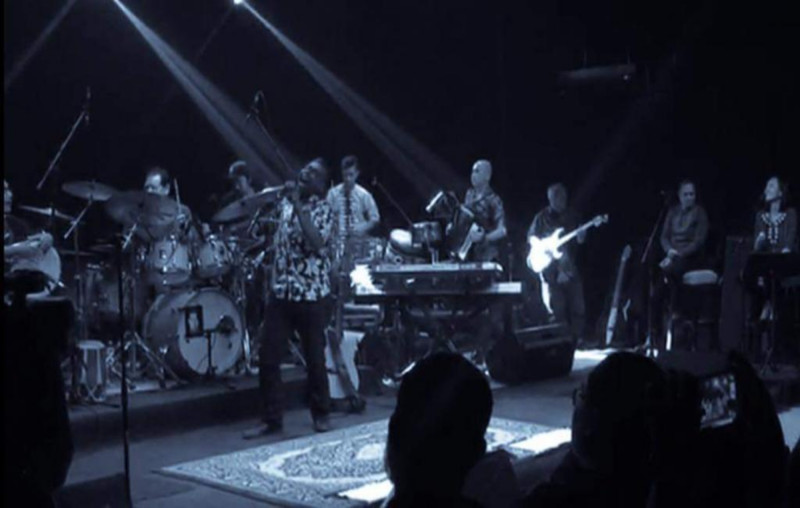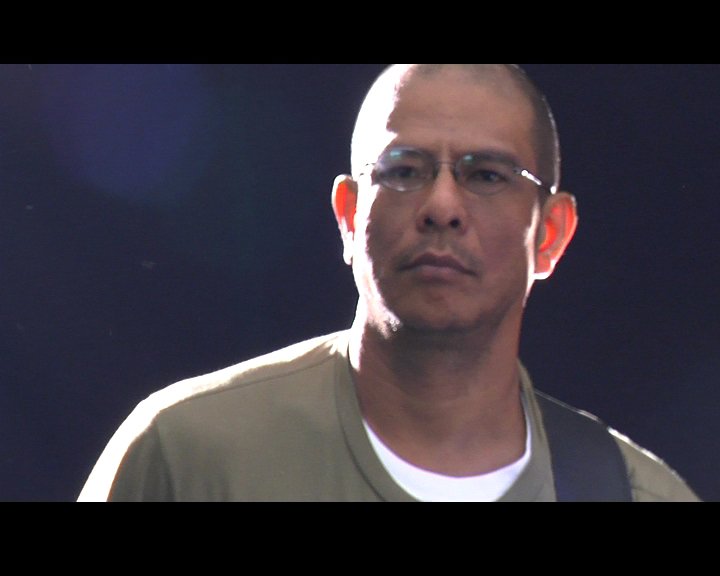Studio owner, composer, and instrumentalist recount the events that led to the explosion of Zainal’s masterpiece
KUALA LUMPUR – The recording of Datuk Zainal Abidin’s iconic 1991 single ‘Hijau’ became a huge success due to a mix of events. It was also because those involved were friends who prioritised art before profits.
Michael Veerapen was the then-owner of Scat Studio in Damansara Heights where the title track of the album was recorded. He said the masterpiece was also made possible due to a perfect combination of high production quality and facilities, good musicians, and artistic vision.
For Michael – who is chief executive of PETRA Music – the track and album were considered a turning point for the country’s music industry.
He said until today, all those involved in its making – including household names such as producer Roslan Aziz, composer Mukhlis Nor, musicians Jenny Chin and Mac Chew, as well as Datuk Sheila Majid – were happy to have played a part in the album and song that had also charted new territory for Malaysian music.
Michael said before its release three decades ago on May 30, 1991, Roslan had been working on its recordings for around an entire year.
Owing to the hundreds of hours spent over months in the studio, the artisan’s company Roslan Aziz Productions (RAPs) had chalked up a whopping bill amounting to tens of thousands of ringgit.

Michael said during the recording sessions, he had asked his studio producer Roslina Jaafar to keep tabs on Roslan’s hours in the studio, which then added up to the cost of a Proton Saga. Later, he said the bill became equivalent to a Honda Civic, and then on, a Honda Accord.
He notes that at the time, RM20,000 for 200 hours in a studio was considered a very big budget. For example, one of Sheila’s albums clocked 300 hours, but ‘Hijau’ exceeded that number several times over.
When the bill reached astronomical levels and as Warner executives – who signed Zainal under their label – became increasingly anxious, Michael intervened.
“So I asked Lan (Roslan), play me what it is you’re doing because the cost was so high,” he told The Vibes recently.

“I loved the music so much. When you listened to it as a whole, it was like ‘woah’, it’s never been heard before in Malaysian music. So I told Lan: ‘You just finish the album’, and I gave him carte blanche.”
Despite the financial uncertainties, Michael said he felt the album must be finished because it was important for Malaysia to hear the music.
This meant that apart from having almost countless access to an RM100 per hour studio, Roslan was given carte blanche to tape reels, which were also costly.
“(I told Roslan) ‘this music must come out.
“Lan is a genius, but geniuses also need to watch the clock. So Scat Studio became the sponsor because I enjoyed the album. I thought it was so fresh, so new and it was important.
“The whole album was fantastic. It was like magic. We effectively became the underwriter of the album. I told my staff it’s okay, let him (Roslan) finish the album.”
Due to the success of the album and single later on, Michael said Roslan was able to repay what he owed the studio, which is why they both remained good friends.
“I sometimes wonder if I had taken the financial approach and say ‘you pay me otherwise, you can’t continue’ – what would have happened?”
“But I’m glad I had trusted my friends and Lan’s judgment, as well as Zainal’s talent, and Jenny and all the other talents because it became a landmark album.
On the single ‘Hijau’, Michael said although he thought it was a good song at the time, he did not think it would become the hit it is today.
“It was one of those songs that Mukhlis wrote where we said, ‘hey Mukhlis, do you have any more songs?
“But that’s how the music business goes, it’s full of stories like that. Sometimes you have to make artistic judgments, and they are more important than the financial considerations.
“I’m glad that on the day when I heard it, I was a musician first and a business owner second.
“Mukhlis’ compositions are exquisite. He is one of the best composers we’ve ever had, and Roslan is such a visionary.
“There was also (Datuk) Afdlin (Shauki Aksan), Sheila and Mac and Jenny everyone involved in the album. They were all brilliant talents, so there is a lot of mutual respect.”
Michael said one of the reasons he decided to have a studio was because he could decide which projects were worthwhile.
“If I had to explain to partners, then they would have said, ‘No, Mike, you’re voted out’ and just pull the plug, or hold it at ransom. This is where it went right and I’m very glad it became what it became.”

‘Hijau’ was written in Louisiana, United States
Composer Mukhlis said he drafted ‘Hijau’ during the final year of his Landscape Architecture studies at Louisiana State University sometime in the mid-1980s.
“At the time, the weather was hot as it was a sub-tropical climate (in Louisiana). I wrote a line before going to class and it was unusual because I drew the lyrics first instead of the song,” he said.
“The song was playing in my head all day and I borrowed a friend’s guitar to find the chords. After an hour I managed to match a poem with the music.
Mukhlis, who was in his 20s at the time, said he wanted to incorporate world music elements and African sounds that were done by the likes of Paul Simon and Peter Gabriel.
“But the use of African language didn’t seem quite right for Hijau. So I thought it would be nice if we had a local dialect like Kelantanese to be included at the end,” he said.
“None of us involved in the recording was Kelantanese and Zainal’s tongue is Johorian. But we had Kelantanese friends in the entertainment industry who helped us refine the lyrics.”
Mukhlis revealed that he made a simple recording of the song some years before giving it to Roslan, who did not take note of it at first, so the composer thought he would save it for himself.
But while finalising the tracks for the album, Zainal came to Mukhlis’ house one day to listen to some demos and showed a keen interest in ‘Hijau’.
“Then Lan called me another day and asked what song I let Zainal listen to, I told him that I had given him (Roslan) the song before, but he didn’t remember. Then, Roslan took Zainal’s word that it was a good song, so we stuck with it.
“The recording wasn’t a trial and error process. We knew all the steps we needed to take and executed them as best as possible. Roslan is notorious for being particular about fine-tuning the songs.
It was raw and touched on the weaknesses of mankind, which is in their nature. The issue will go on and there will always be people who are evil.”
Ultimately, Mukhlis said it took around two or three months for the single to be completely recorded, adding that the song was significant to him because it was released several months before he was married.
And although he also did not think it would become a hit, Mukhlis said the song became popular due to its subject matter.
“It was raw and touched on the weaknesses of mankind, which is in their nature. The issue will go on and there will always be people who are evil.”
Unique instrumentation
Instrumentalist Mac Chew was largely credited for laying out the accompanying music for ‘Hijau’. He said the pre-production of the track was done in Kuching when he and Roslan visited Sarawak to record the rock band Ekamatra.
“I would allocate half a day to work on Ekamatra and spend another half to concentrate on Zainal’s song. We were basically locked up in one area to cook up ‘Hijau’ but the demo that Mukhlis gave had simple chords and melody.
“The first thing I wanted to do was add some movement and more chords to the song. I had experimented with changing chords around at every beat. I also ensured that the chords did not clash with the melody.”
Mac said one of the most unique instruments in the track was the African marimba, a percussive instrument that complimented the chords.
“We later called on the session musicians to add to the layers. After we flew back to Kuala Lumpur, Roslan had called on artists such as Erwin Gutawa and Zahid Ahmad to contribute. Roslan also found a busker who played the Indian cimbalom who did the colouring.”
“What we created (on instrumentation) was something that left a lot of space. There were a lot of things going on but it did not overpower the vocals. It was quite relaxed and not overly technical.”
Mac believes ‘Hijau stood out the most among other tracks in the album due to its message and Zainal’s plan to market himself as a pioneer in the world beat sound in the country.
“We wanted to do a world album concept featuring sounds from other cultures, and Hijau had everything that was needed.”
By : A AZIM IDRIS – THE VIBES
